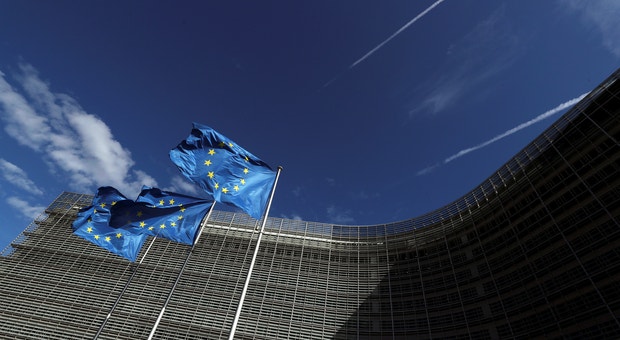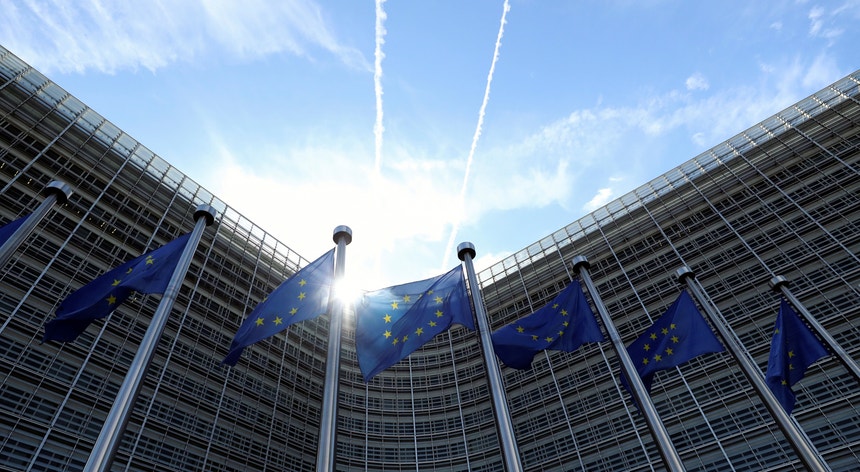The speech should therefore have references to the Commission’s measures to respond to the health, economic and social crisis caused by Covid-19, but also to the plan for Europe’s recovery, the fight against climate change, the new measures in the field migration and asylum and the situation in countries in the European neighborhood.
Antena 1
Portuguese MEPs look forward to Ursula Von der Leyen’s speech and consider that there are issues that cannot even be left out.
Carlos Zorrinho, elected by the PS, also wants to hear a president of the solidarity committee.
“Deeply allied with countries that want sustainable progress for the European Union, because the strategies are right: leading the energy transition, leading the digital transition. We also need an answer that is credible and strong in relation to migration ”.
Paulo Rangel wants a word about the importance of the rule of law and mobility in the Schengen area and special attention to Brexit.
“There is a highly tense situation and even some hostility between the Boris Johnson government and the European Institutions. I imagine what the Portuguese citizens are going through because at the moment everything is at stake ”.
Humanity is what the Left Bloc MEP wants to be present in Ursula Von der Leyen’s speech.
“There can be no lack of answers to the problems that people are facing. The crisis has greatly increased poverty and inequality. We are experiencing tragedies at the borders, around the Union and within the Union. There are many tragic situations such as many refugees ”.
João Ferreira, from PCP, also highlights the importance of hearing about the need to reinforce the European budget
“It was essential that we still have time to reverse the planned cut to the multiannual financial framework and regardless of what happens to the recovery fund”.
Nuno Melo, from CDS-PP, wants the State of the Union speech to not forget the issue of migration.
“It is a very topical issue and it affects many people, starting with migrants and refugees who are lost and abandoned all over Europe”.
Francisco Guerreiro, elected by the PAN but now independent, wants to hear that climate issues will underlie the European response to the pandemic.
“Not only by the recovery fund but by the multiannual financial framework, ensure that this is the basis for Europe’s economic and social recovery”.
The themes that divide
The State of the Union: that is, where you are and where you want to be. Nobody would have imagined that this year, the first by Ursula von der Leyen, was marked by a pandemic that shook society, weakened the economy and still cast doubt on the future.
That is why, how to deal with this virus, economically and socially, seems to unite Europe. The desire, at least, because the way to achieve it created divisions when it was necessary to lay the foundations for a recovery plan.
Antena 1 asked Portuguese MEPs what differences they consider most striking in a Union that wants to invest more in the green agreement, in digitization, in cohesion and in external geopolitics.
Carlos Zorrinho considers that there are still divergences in the way we want to continue this project.
“There are diverse views on how the European Union should evolve. In particular, the existence of some so-called frugal countries that look to the Union essentially as a market ”.
The MEP of the PS identifies yet another problem: “More recently, the so-called countries iliberais that have sought to distort the essential constitutional values of the European Union ”.
 –
–
Antena 1
Paulo Rangel considers that the desire to have a more humane migration policy is common, but it can create divisions.
“It is possible that there is now a very large vacancy because many countries will suffer a lot from the crisis and, therefore, unemployment will increase. And this is also a fact for migrations because with high unemployment in Europe, there is less space to welcome migrants ”.
The PSD MEP also admits that compliance with the rule of law can create a division between states.
“Clearly Poland and Hungary will be in opposition, but also other countries such as the Czech Republic, Bulgaria and even eventually Malta may have problems with respect for fundamental rights and above all for freedom of the press”.
There are common wills, yes, but Marisa Matias, from Bloco de Esquerda, also identifies how countries often react, as a factor that does not facilitate the identification of common priorities.The State of the Union is presented by the President of the European Commission and may even create more ambitious targets for the European green pact and digitization. Two of Ursula von der Leyen’s big bets that must accompany all the recovery that we want to make, the 27th, of the European economy.
“There are national egotisms at the moment. And the rules of the internal market have also created more divergence than approximation. But what can bring together the most is cohesion policy and common policies. So that there is greater equity in the access and redistribution of resources ”.
For PCP MEP João Ferreira, lack of coordination in responding to the pandemic does not help in a common struggle, especially in terms of health issues.
“Incoordination also in ensuring uniform and judicious conditions of circulation in the European space. On the other hand, there is also uncoordination of the response to the economic consequences of the pandemic because the budget reinforcement failed. We arranged an expedient that hides the cut that the Budget will suffer, but that will have consequences in the future ”.
Nuno Melo, from CDS-PP, considers that what now unites Europe the most, the fight against the pandemic, can also separate it.
“Probably by the way we will overcome this pandemic crisis, a federalist puncture may emerge that tends to take advantage of the consequences of Covid-19 to force certain federalist steps such as the creation of own resources”.
Independent MEP Francisco Guerreiro admits that there are still some national strategic interests that hinder understanding between Member States.
“Several States within the European Union that make the negotiation process of the multiannual financial framework more difficult, not complying with rules of European law, and creating some facilitations in the negotiation of own resources”.
– .


